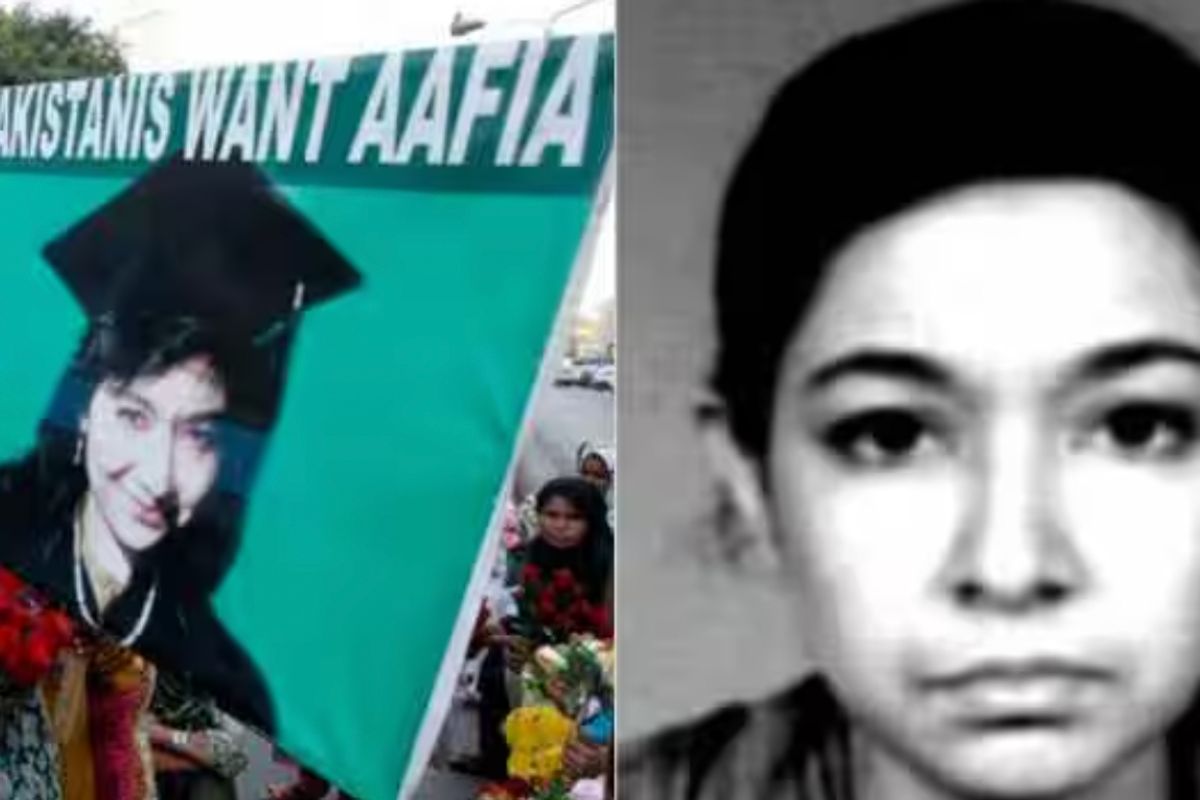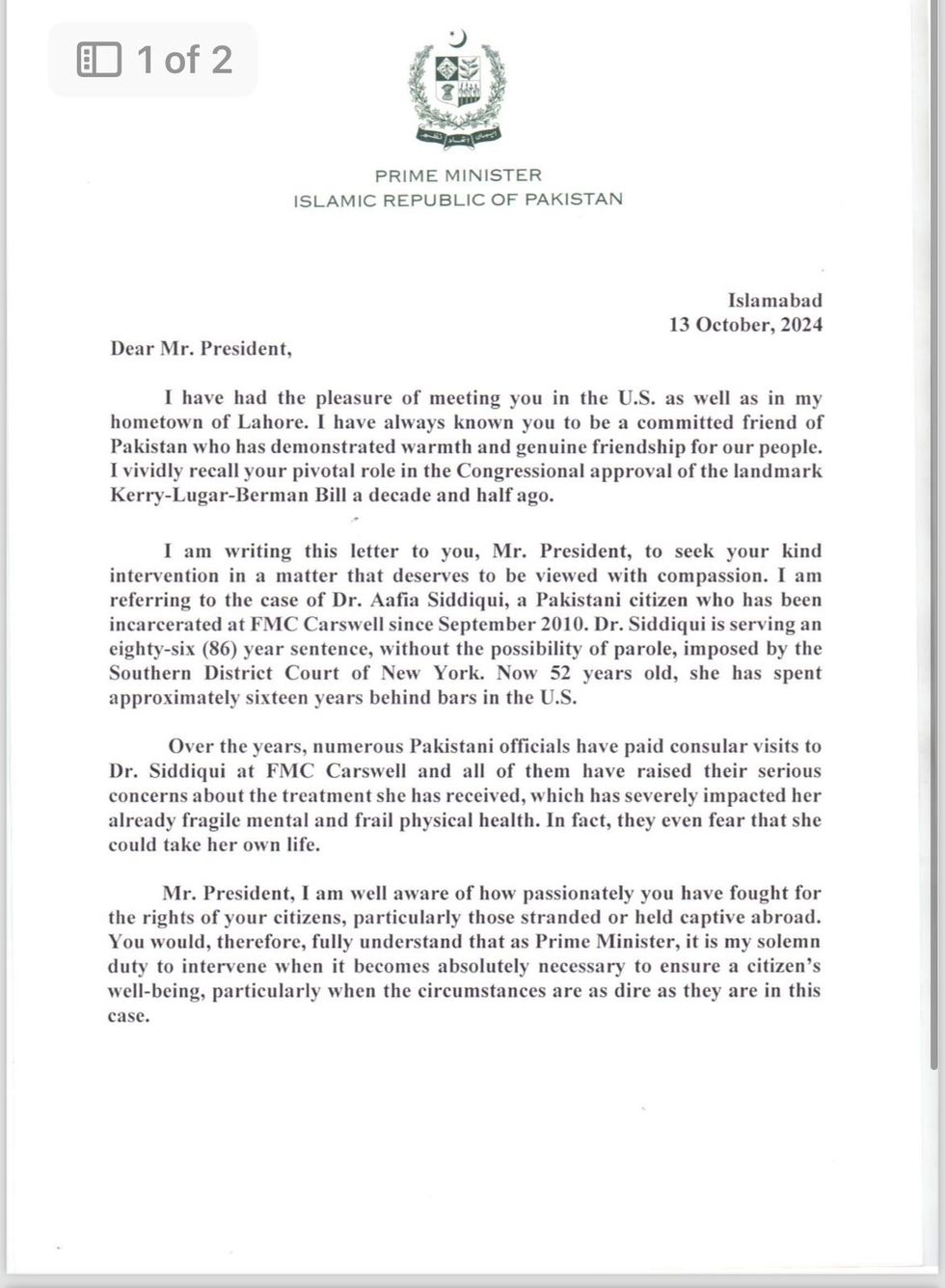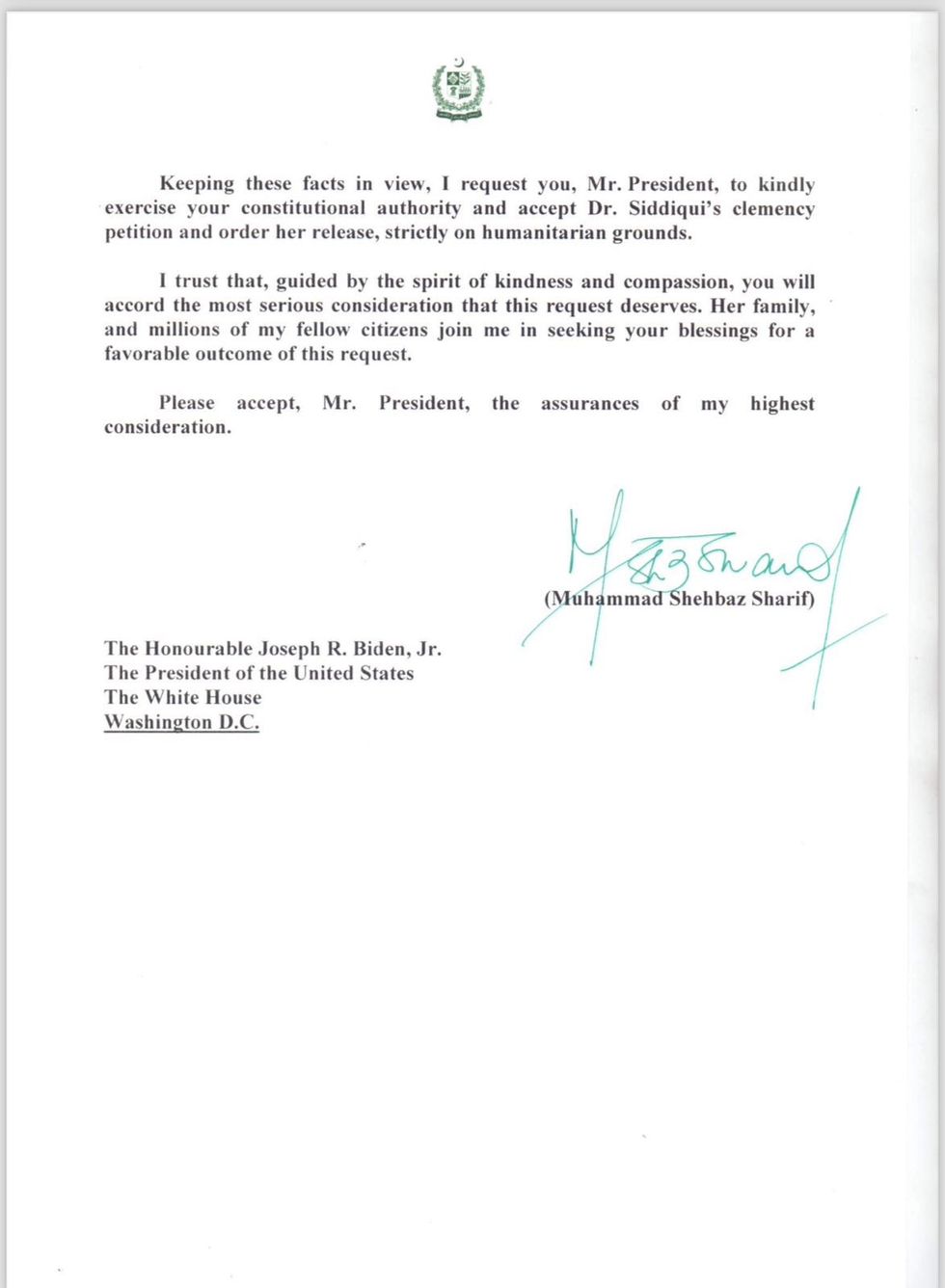Pakistan appeals to US for Aafia Siddiqui’s release on humanitarian grounds
Prime Minister Shehbaz Sharif writes letter to US President Biden seeking release of jailed neuroscientist
News Desk
The News Desk provides timely and factual coverage of national and international events, with an emphasis on accuracy and clarity.

Aamir Abbasi
Editor, Islamabad
Aamir; a journalist with 15 years of experience, working in Newspaper, TV and Digital Media. Worked in Field, covered Big Legal Constitutional and Political Events in Pakistan since 2009 with Pakistan’s Top Media Organizations. Graduate of Quaid I Azam University Islamabad.

Aafia Siddiqui has been in a US jail for 16 years
Reuters
PM Shehbaz writes letter to Biden seeking Aafia Siddiqui's release marking first request of its kind
MIT graduate was sentence to 86 years in 2010
Her children have spent large part of their lives without her
In a surprise move, Pakistan has sought the release of Aafia Siddiqui, a Pakistani citizen serving an 86-year sentence in a U.S. prison for attempting to shoot U.S. military officers in Afghanistan.
The information came to light during the hearing of her sister's plea in the Islamabad High Court (IHC) seeking her release and return to Pakistan. Additional Attorney General Munawar Iqbal Duggal informed the high court of the development.
Justice Sardar Ejaz Ishaq Khan presided over the hearing.
The letter
Imran Shafiq Advocate appeared in court on behalf of Dr. Fauzia Siddiqui.In a letter addressed to U.S. President Joe Biden, Prime Minister Shehbaz Sharif sought her release on humanitarian grounds, marking the first request of its kind.
"I am writing this letter to you, Mr. President, to seek your kind intervention in a matter that deserves to be viewed with compassion. I am referring to the case of Dr. Aafia Siddiqui, a Pakistani citizen who has been incarcerated at FMC Carswell since September 2010," Shehbaz wrote.
The Pakistani neuroscientist has been at the center of international controversy following her arrest and conviction in the U.S. Her case has sparked widespread protests in Pakistan, where many believe she was unjustly treated.
"Dr. Siddiqui is serving an eighty six (86) year sentence, without the possibility of parole, imposed by the Southern District Court of New York. Now 52 years old, she has spent approximately 16 years behind bars in the U.S.," Shehbaz further said in the letter, a copy of which is available with Nukta.

A copy of the letter available with Nukta
PM Office

Sharif also expressed concerns over Siddiqui’s physical and mental health, citing reports from consular visits by Pakistani officials over the years. “They even fear she could take her own life,” he added.
Praising Biden for his efforts in advocating for U.S. citizens in captivity abroad, Sharif said it was his duty to intervene “when it becomes absolutely necessary to ensure a citizen’s well-being, particularly when the circumstances are as dire as they are in this case.”
"I request you, Mr. President, to kindly exercise your constitutional authority and accept Dr. Siddiqui's clemency petition and order her release," he said.
Family awaits return
The MIT graduate was captured in Afghanistan in 2008 allegedly in possession of materials for bomb-making and plans to target US landmarks.
During her interrogation, Siddiqui reportedly attempted to shoot U.S. personnel, which led to her conviction for attempted murder and a subsequent prison sentence.
Siddiqui has three children, two of whom are living with her sister, Dr. Fawzia Siddiqui, who has been a prominent advocate for her release. The third child remains missing, and all three have spent a significant portion of their lives without their mother.
The case continues to be a focal point of public and political debate in Pakistan, with her family's struggle gaining widespread attention and support.
'Letter could influence US authorities'
Legal expert Barrister Saad Rasool weighed in on the letter seeking clemency for Dr. Aafia Siddiqui. Rasool clarified that, while the American President has the constitutional authority to pardon individuals convicted in the U.S., there is no legal obligation for the U.S. authorities to act on a Pakistani court's ruling.
However, Rasool highlighted the possibility of diplomatic cooperation between the two nations, stating, “Friendly countries often respond to such requests, especially when they have shared strategic interests, such as in the case of Pakistan and the United States, who have long collaborated on security and counterterrorism efforts. This could influence the U.S. authorities to consider the letter."










Comments
See what people are discussing